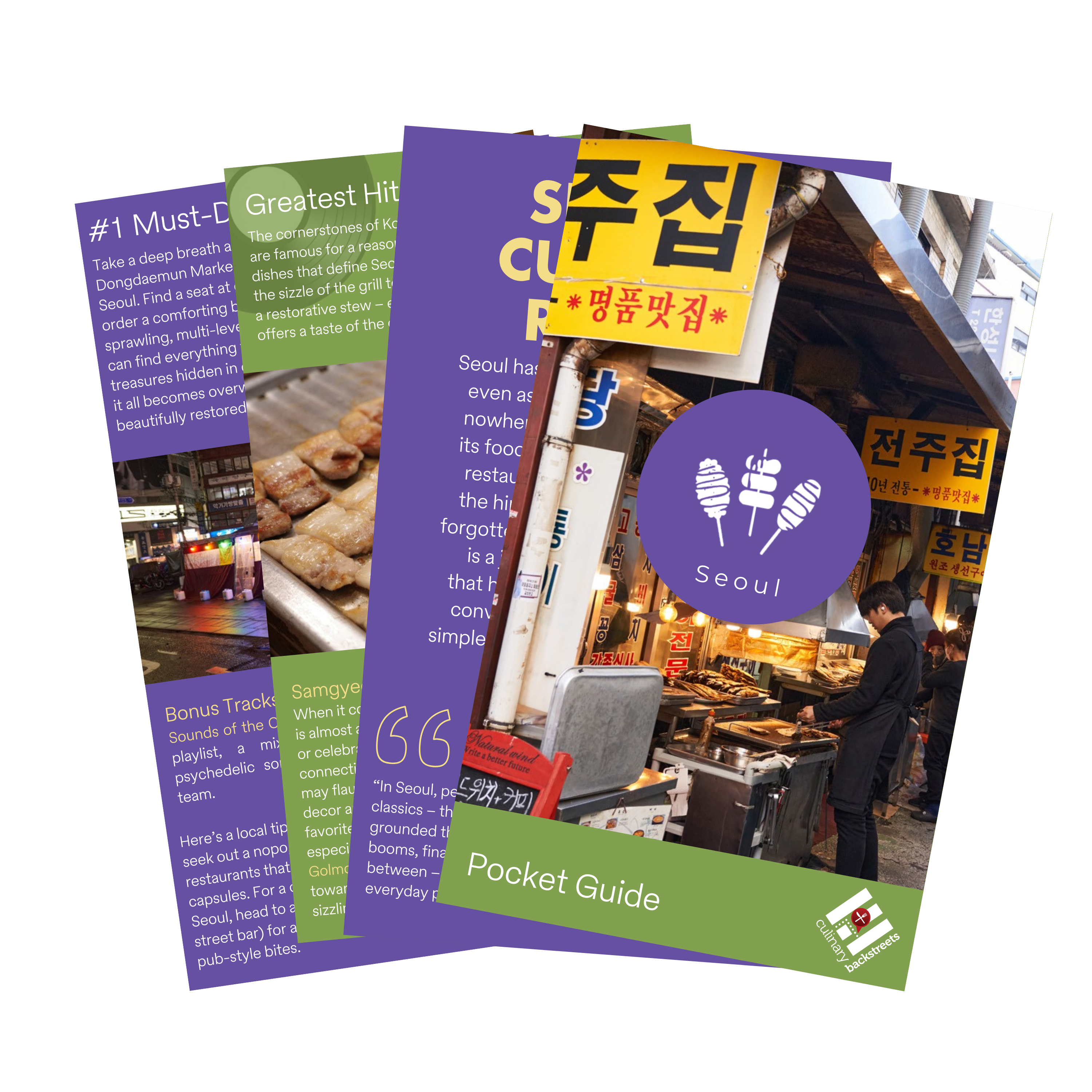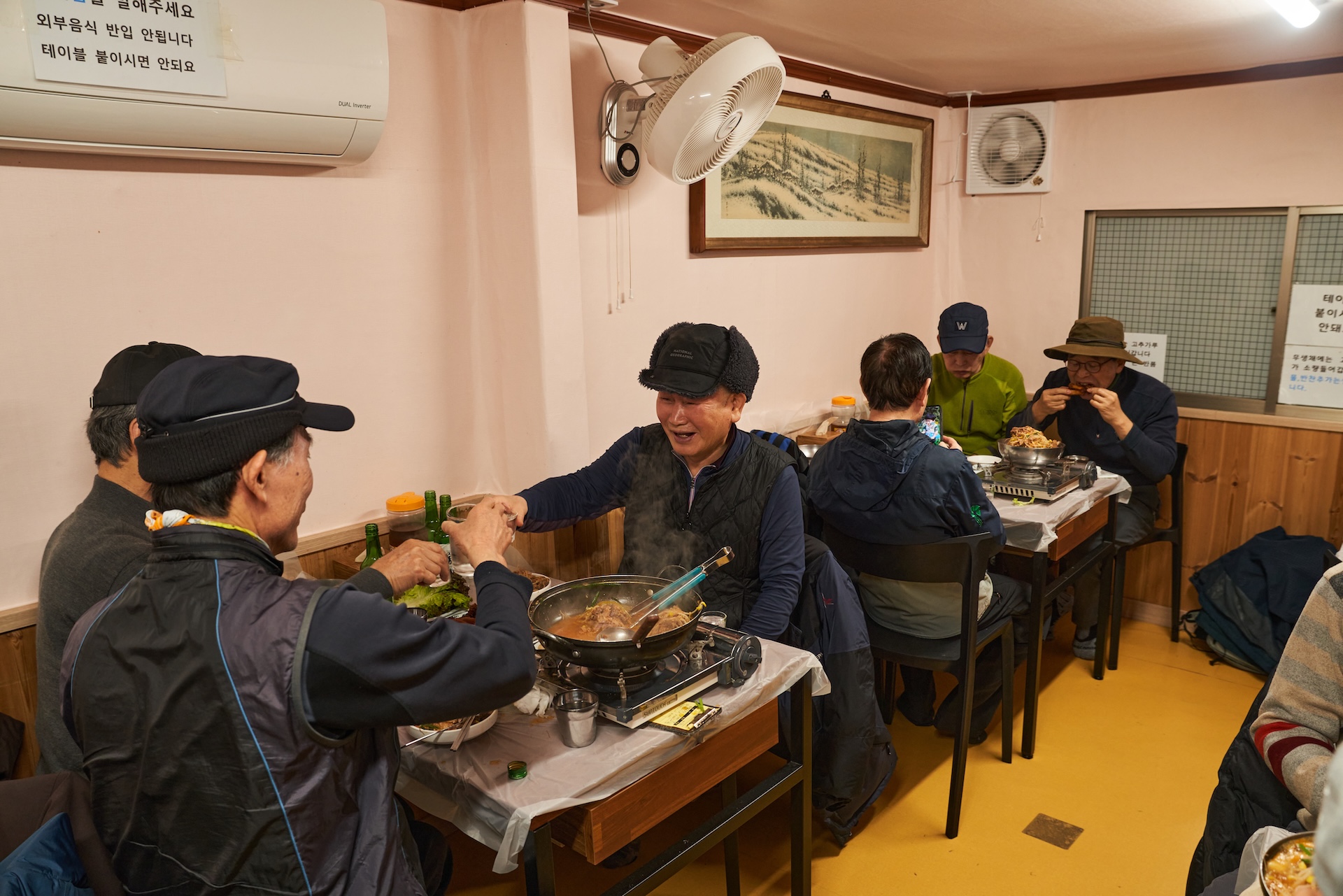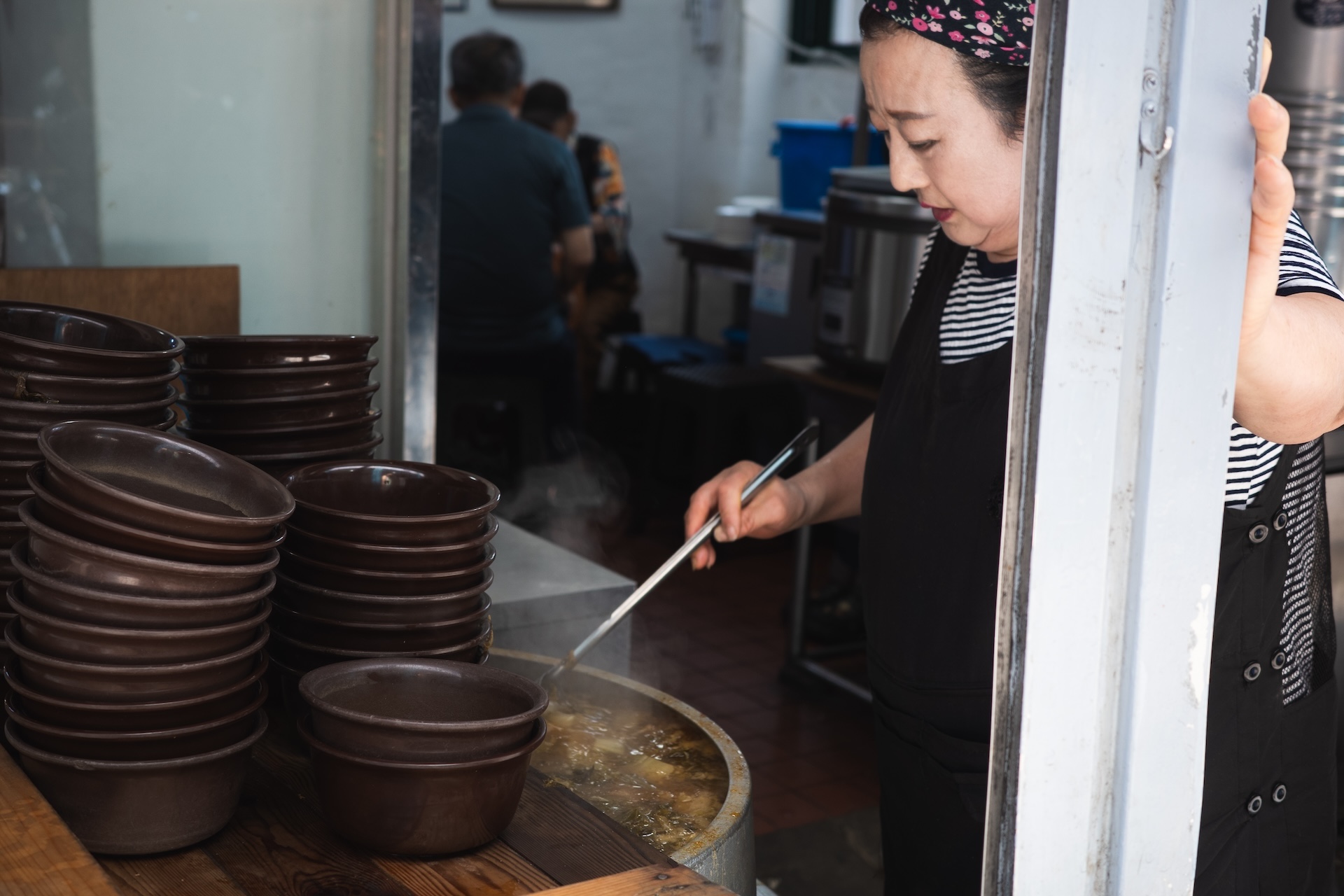We can't find the internet
Attempting to reconnect
Something went wrong!
Hang in there while we get back on track


Seoul
Seoul's culinary record
The sheer variety of dining opportunities in Seoul make it a paradise for curious eaters. Consider Michelin-starred speakeasy-type ten-seaters to rowdy tent bars serving fried eels, market stalls serving world-famous savory pancakes to the latest fad in donuts, throw in barbecue, dumpling joints, an abundance of fresh oysters, and knock-your-socks-off fried chicken and you’re barely scratching the surface of this venerable chow town.
Get the Full Story →
Get Your Free Seoul Pocket Guide
Introducing our pocket-sized Seoul guide — perfect for your next culinary adventure. Yours free when you sign up for our newsletter.
Get Your Free Seoul Pocket Guide
Introducing our pocket-sized Seoul guide — perfect for your next culinary adventure. Yours free when you sign up for our newsletter.
Your Questions, Answered
South Korea currently has no COVID-19 testing, proof of vaccination, or quarantine requirements for entry. It’s always a good idea to check the latest South Korean government guidelines before you travel, as things can change.
You can fly directly to Incheon International Airport (ICN) from many international cities. Within Korea, the high-speed KTX takes about 3 hours from Busan.
When it comes to the best things to do in Seoul, it’s hard for us not to dive right into eating! But on top of all the great food, there are the grand palaces like Gyeongbokgung, traditional Hanok villages like Bukchon, or non-stop nightlife in areas like Hongdae.
Seoul is considered a very safe city with a low crime rate. Like anywhere, it’s good to be aware of your surroundings, especially in crowded areas.
While Seoul itself isn’t on the coast, there are beaches within a few hours’ travel by public transportation, such as Eurwangni Beach and Daecheon Beach.
Seoul is continuously improving its accessibility. The subway system is generally well-equipped with elevators and ramps, and many tourist attractions have accessible facilities. However, some older areas and smaller establishments might still present challenges. It’s always a good idea to check accessibility information in advance, and Visit Seoul has a guide answering common accessibility questions.
Seoul has four distinct seasons. Be prepared for hot, humid summers (June-August) with humidity and rains, and temperatures averaging in the 80s (°F), sometimes even reaching the low 90s. Winters (November-March) are cold and dry, with temperatures often dipping below freezing, and occasional snow. Spring and autumn are milder and comfortable with temperatures in the high 50s to 70s.
Myeongdong and Hongdae are popular spots for first-timers, with lots of shopping, food, and easy access to transportation. Insadong is great for traditional vibes, and Gangnam is where you’ll find a more upscale atmosphere.
Seoul is the capital city of South Korea and located in the northwestern part of the country. It’s right on the Han River, which has played a big part in making it a center of politics, culture, and economics for centuries.
There’s endless thing to eat in Seoul. Start with the obvious: Korean BBQ, bibimbap, and kimchi jjigae (stew). Then expand into all the incredible street food, like tteokbokki (spicy rice cakes) and odeng (skewered fish cakes) at Gwangjang Market, which we visit on our food tour.
Generally, US citizens can visit South Korea without a visa for up to 90 days for tourism. Double-check the current travel advisories before you go.
Spring (March-May) and autumn (September-October) are generally considered the best times to visit Seoul. The weather is great, with cherry blossoms in spring and beautiful foliage in autumn. It can be a bit busier then, but well worth it.
Seoul can be affordable if you know where to look. There are plenty of budget-friendly options for food and accommodation, as well as some fancier choices if you’re looking to splurge. A decent 3-star hotel might cost $70-150 per night. Coffee is around $3-5, a beer about $4-7, and a sit-down meal $10-25 or more. Street food is cheaper, from $2-10. Public transport is very affordable, around $1-2 per ride.
Seoul is a fantastic destination for families. There’s something for everyone to enjoy, including museums and theme parks like Lotte World and Everland. The city also has plenty of outdoor spaces, like the Han River Parks, and a lot of food kids from all over will dig. Seoul’s efficient public transportation system makes it easy to get around.
























